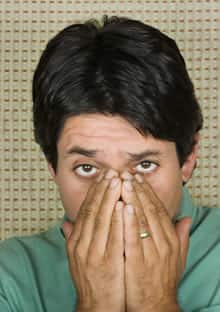Why do we get dry mouth?
There is a reason you often wake up with a dry mouth and, as a result, bad breath — when we sleep, our body produces less saliva, creating a dry environment where germs thrive. If you tend to breathe through your mouth, bad luck: the constant flow of oxygen through there makes for a fiercely parched environment.
Hidden signs
Don't be fooled into downplaying dry mouth and its resulting bad breath as a mere annoyance. Unfortunately, dry mouth can be a sign of more serious health issues, such as kidney problems, liver disease and diabetes. Women who are in the midst of menopause may also complain of dryness in the mouth, due to hormone changes in the body.
DID YOU KNOW?
There are at least 400 medications known to cause dry mouth as a side effect, so you should read through the information pamphlet if you are on a prescription.
What to do?
To combat bad breath, brushing the teeth and tongue with an electric toothbrush helps, but flossing is vital. An experiment on groups of twins showed that those who only flossed had better breath than those who only brushed.
You should also keep your mouth hydrated by drinking lots of water, and sugar-free chewing gum helps if necessary. This will stimulate saliva flow and ensure you don’t give germs a chance to produce bad odors.
If small steps don’t help, seek help from your dentist. They will help you identify the cause of dry mouth, and maintain moisture with a good oral hygiene routine.
What to avoid?
Many tobacco users experience a dry mouth, as the smoke eliminates moisture. So that's one more reason to put down your pipe, cigar or cigarette! Alcohol consumption or drinking tea and coffee are also linked to dry mouth, so cutting down on those, or washing your mouth out with water afterwards, will help.
This article is intended to promote understanding of and knowledge about general oral health topics. It is not intended to be a substitute for professional advice, diagnosis or treatment. Always seek the advice of your dentist or other qualified healthcare provider with any questions you may have regarding a medical condition or treatment.
ORAL HEALTH QUIZ
What's behind your smile?
Take our Oral Health assessment to get the most from your oral care routine
ORAL HEALTH QUIZ
What's behind your smile?
Take our Oral Health assessment to get the most from your oral care routine













